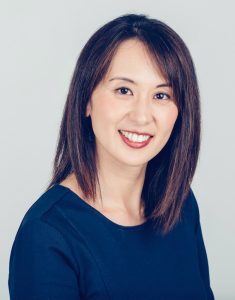How Digital Humanities Construct the Ideas of Historicity (A Case of Japanese History)
Place: UBC Institute of Asian Research Room 351 (C.K. Choi Building 1855 West Mall)
By: Dr. Tomoko L. Kitagawa (University of California, Berkeley)
Dates: Wednesday, September 28th
Time: 12:30-2:00pm
About the Event
In Virtual History (1998), Niall Ferguson and his collaborators presented “alternative histories” to challenge deterministic ways of viewing history. They asked why history had to be always factual, deliberately implemented the idea of taking a “chaotic approach” to history, and wrote counterfactual scenarios. Certainly, writing subjunctive narratives was difficult to take for many historians, but it had a point; it made us aware of the nature of negotiating two genres, fiction and non-fiction.
The line between real and imaginary storytelling has always been blurry. To make matters more complicated, our contemporary world is highly digitized, and we are put in the situation where we need to construct the distinctions between “virtuality” and “reality” through everyday activities associating with new media. It has become apparent that the ideas of “virtual history” have expanded greatly in the past two decades, so why don’t we confront the term once again and examine it for ourselves?
This talk begins with a note on literary genres and makes an assessment of the state of the field—digital humanities. We will examine logics, techniques, and rules used in real and imaginary storytelling, and we will see how increasingly history is told in “virtual” space. Furthermore, viewing some sample works of digital history, we will notice that virtual history is no longer subjunctive or counterfactual; digital history, which presents a mediated or augmented reality, is now perceived as “history,” that is, non-fiction.
This critical change is directly related to the ideas of historicity, and the goal of this talk is precisely to point out how digital humanities are placing history in overlapping areas of fiction and non-fiction and widening the capacity of our historical consciousness. Because I will use samples dealing with Japanese history for this talk, we will discuss ways of presenting Japanese history with or without new media. Will the treatment of the subject change? If so, why? I will demonstrate concrete examples from the pre-modern society for faculty, students, and other audience members to voice their opinions.
About the Speaker

Tomoko L. Kitagawa graduated from the University of British Columbia (B.Sc. Mathematical and Life Sciences ’03, M.A. Asian Studies ’06). She received her Ph.D. from Princeton University in 2009, and taught history at Harvard University from 2009 to 2012. In Japan, her first book, published in 2012, became a national bestseller; she was selected as one of the 100 most influential people in Japan, and delivered a TEDx speech. In 2013, Kitagawa conducted her research at the Needham Research Institute and the Isaac Newton Institute for Mathematical Sciences and published three more books. She continued her historical writing at Wolfson College Cambridge in 2014, and published her fifth book in 2015; she was cited as one of the 100 most amazing Japanese women, and delivered a keynote speech at the World Heritage Learning Summit. She began a new project on the history of mathematics at the Max Planck Institute for Mathematics, Bonn Germany, in 2015 and is continuing her research at the University of California, Berkeley, in 2016.
See the poster for the event.